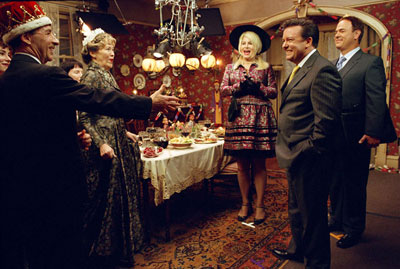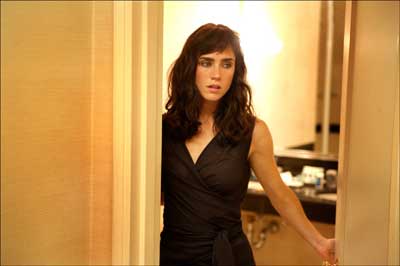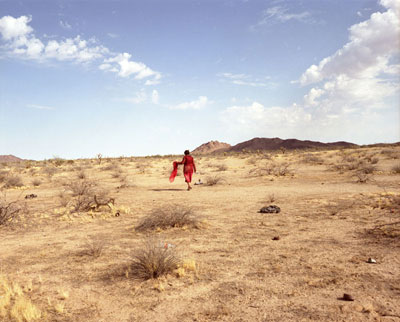
Written by Eugene Levy and Christopher Guest
Directed by Christopher Guest
It starts around September and goes right through until January when the nominations are announced. Hollywood slowly unveils their most thought-provoking, most dramatic, most controversial films. Some launch in hundreds of theatres throughout North America; others launch in just dozens. Every facet of the way the film is marketed needs to be just right. The stars need to make the talk-show rounds while the critical circles lay claim to their yearly favorites. You don’t want to be oversold and disappoint nor do you want to go unnoticed. What you want is your name called at that ungodly hour. When it is, you will no longer be introduced by your name alone. From now on, your name will always be preceded by Academy Award Nominee. The moniker will open doors for you, get you better scripts with better directors and better paychecks. If you’re none too careful though, it could also get you an overinflated ego that could cause major rifts on set. The doors that open lead to bigger rooms which means bigger possibility for public humiliation when you start to think you’re so much better than you actually are. All of this also means huge potential for laughs and jabs should the entire process of an actor’s performance on it’s way to an Oscar nomination be parodied, especially if it is to be parodied by writers, Christopher Guest and Eugene Levy, of BEST IN SHOW and WAITING FOR GUFFMAN fame. Huge potential can go either way though and sadly for Guest, Levy and the rest of the gang, their latest, FOR YOUR CONSIDERATION, a movie about a movie that starts to generate Oscar buzz, does not live up to its own awards season hype.
As the cast of characters is introduced and the scene is set, promise is shown. Guest himself plays Jay Berman, the director of the small Hollywood production, “Home for Purim.” The film stars veteran film actress, Marilyn Hack (Catherine O’Hara), as a mother nearing her death whose family has come home for the Jewish holiday. Joining Hack in front of the camera are Dad (Harry Shearer), son (Christoper Moynihan), daughter (Parker Posey) and her (scandal!) girlfriend (Mary Pat Hooligan). Other Guest regulars like John Michael Higgins as a neurotic PR guy and Jennifer Coolidge as a vapid producer fill out the space behind the camera. Bob Balaban and Michael McKean play the possessive writing team while Fred Willard and Jane Lynch play entertainment show hosts with permanent smiles hiding their empty souls. The size of the cast stretches so far that when Marilyn learns that an internet site believes her performance to be Oscar worthy, the reaction ripples further than it should. There is no time to develop anyone past the quirkiness that exemplifies most Guest character creations. With a running time of under an hour and half, clearly the time could have been taken. O’Hara’s Hack does receive more focus than any other but even her storyline seems to be missing an enormous chunk as her progression goes from intriguing to perplexing. The Oscar buzz leads to more attention and more focus on the cast and then suddenly, the film ends. I felt as though nothing had happened when so much should have.

While the film does not satisfy on the surface, it does make a strong statement on the ridiculousness of the awards season. Now I’m an Oscar enthusiast but even I can acknowledge how silly the whole thing is. The title, FOR YOUR CONSIDERATION, comes from a common practice for production companies to take out full page ads in Variety asking Academy voters to consider a particular performance when they are making their picks. In the context of Guest’s film, it seems to be asking voters to consider something else entirely, like how out of control this process has become. Recognizing certain performances over others negates the craft itself and creates a hierarchy of status amidst the acting community. As if actors didn’t doubt their abilities enough to begin with, the need for an Oscar to validate your career choice forces talent to become second to recognition. Guest’s inclusion of the entertainment show or film critics and fair-weather executive producers only further criticizes all the hands that manipulate the machine. No role in Hollywood goes untouched by Guest; they all get swept up in the false reality of the pinnacle of success known as the Academy Awards.
Ironically, Catherine O’Hara’s performance in FOR YOUR COSIDERATION has begun to generate some Oscar buzz of its own (which I just contributed to). But anyone who knows a thing or two about what gets a name onto an Oscar ballot knows that no matter how good a performance is (and this one is pretty darn good but not that good), if said performance is better than the film it comes from, the walk to the podium gets that much longer. Christopher Guest better make sure he books ad space in Variety early.












